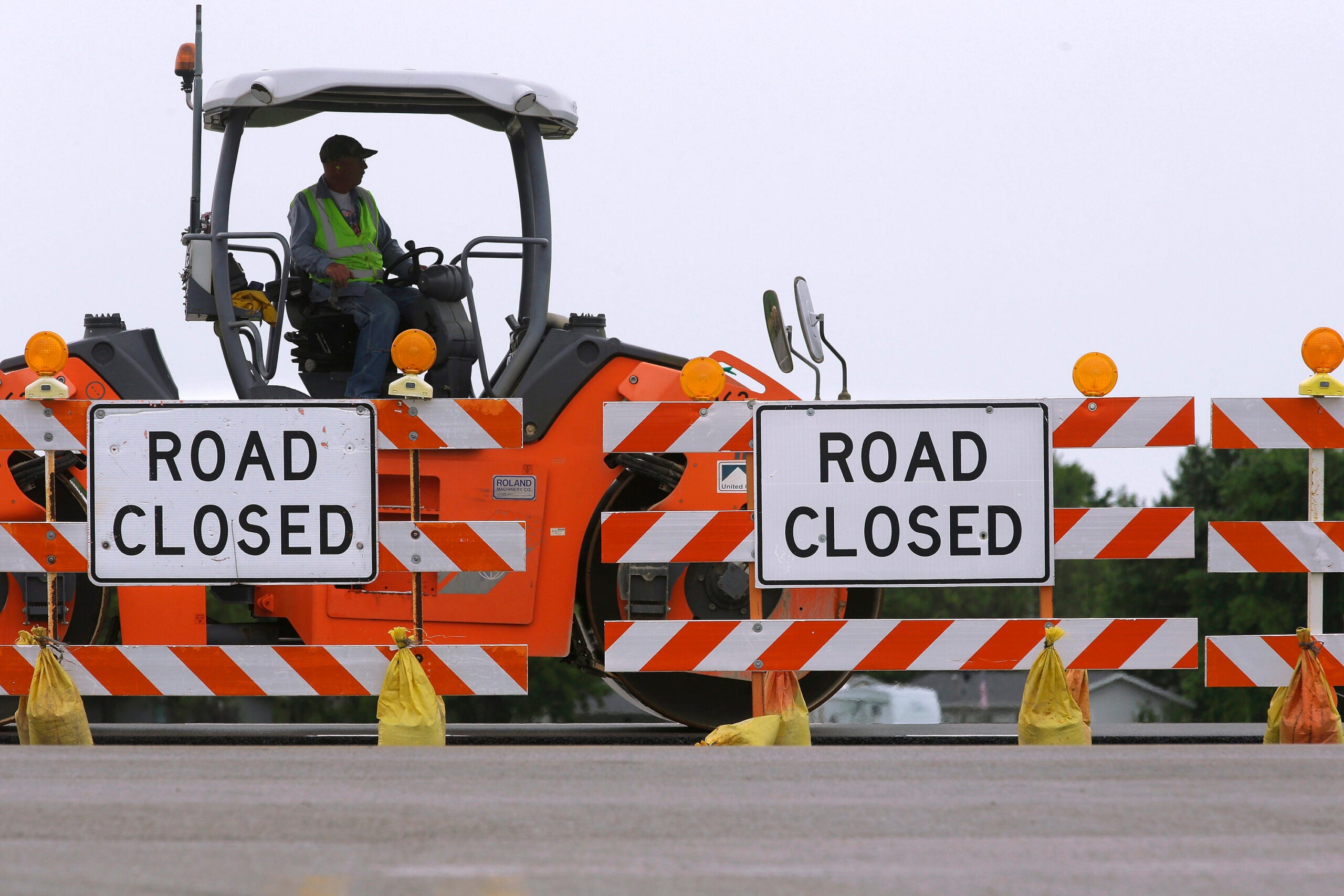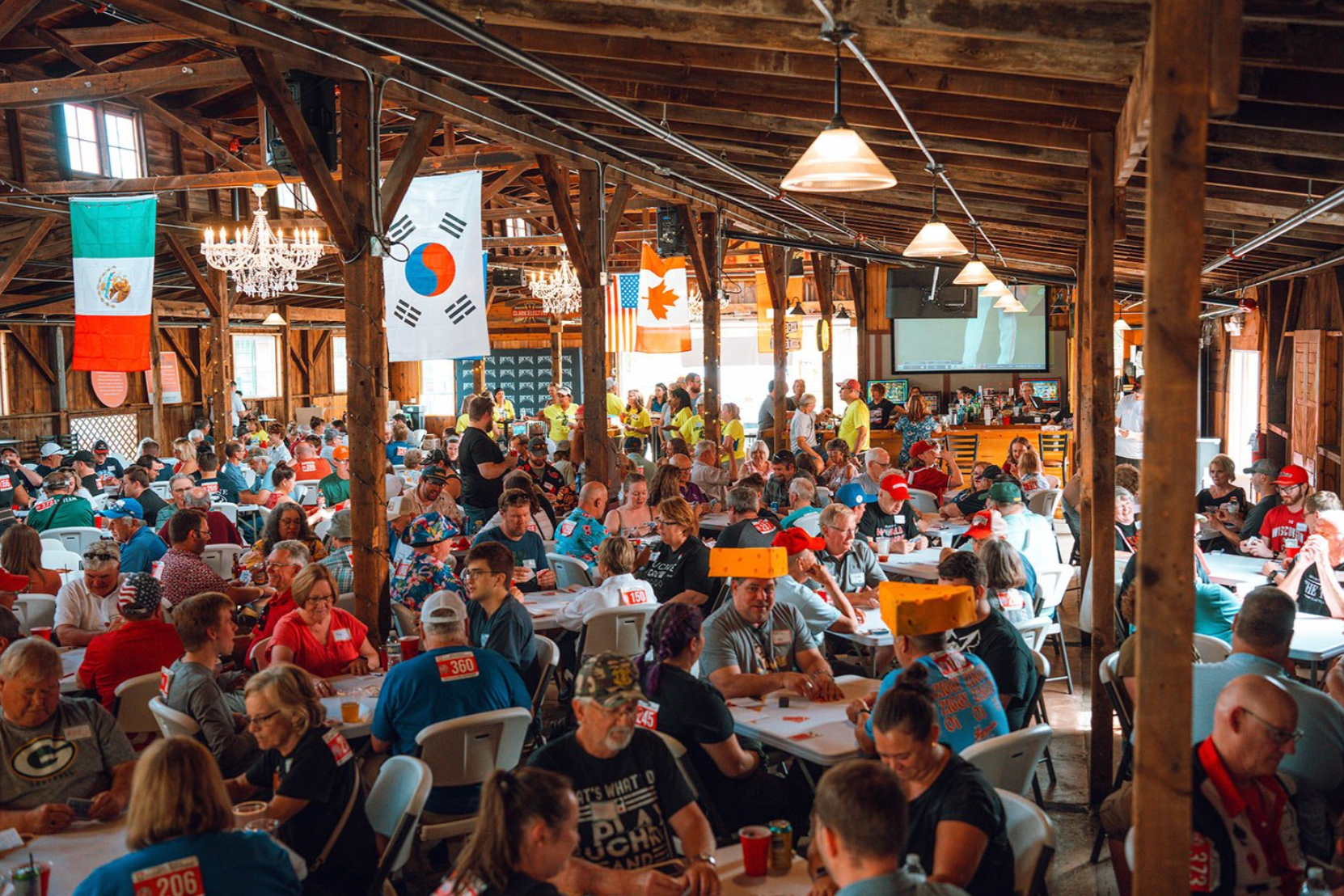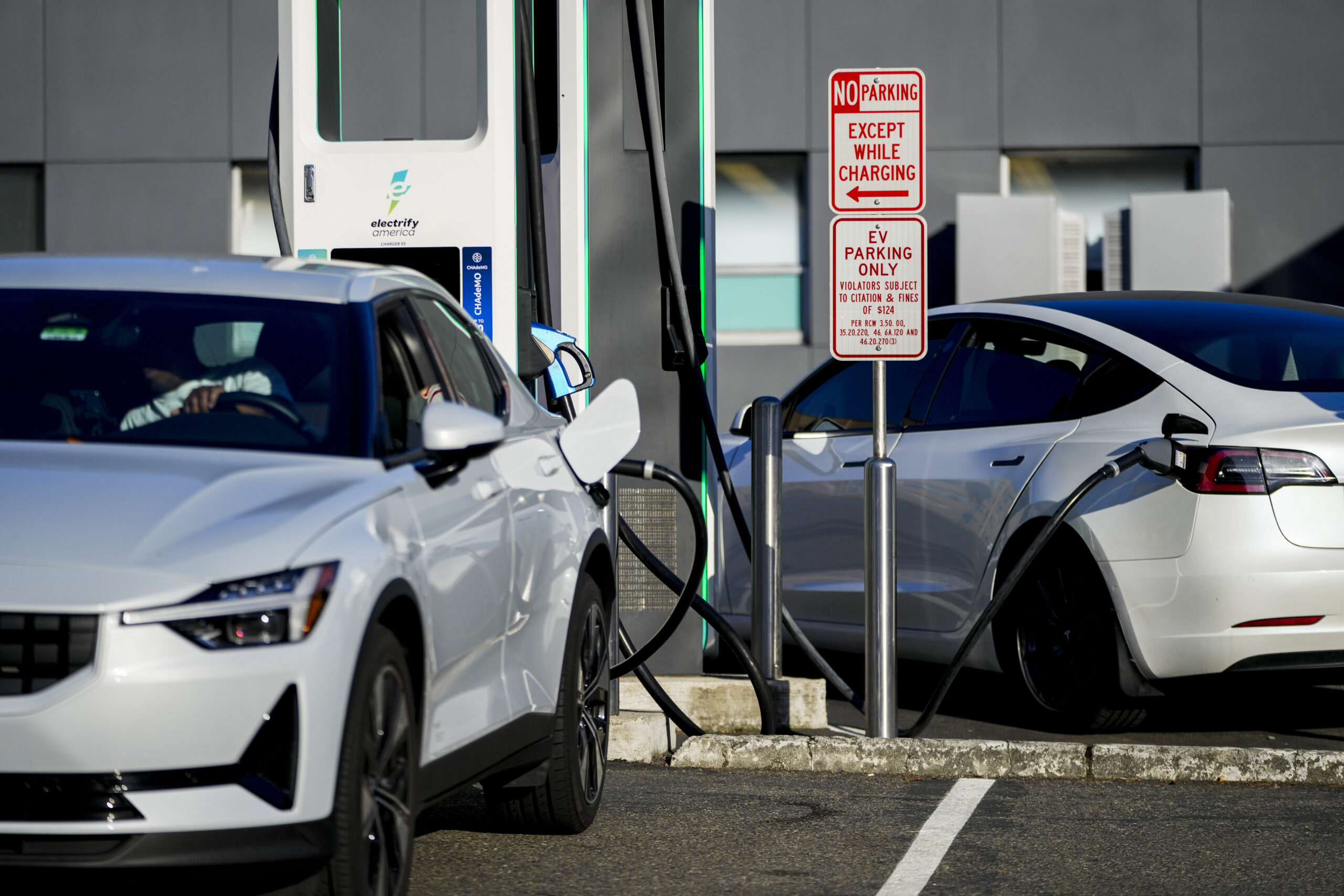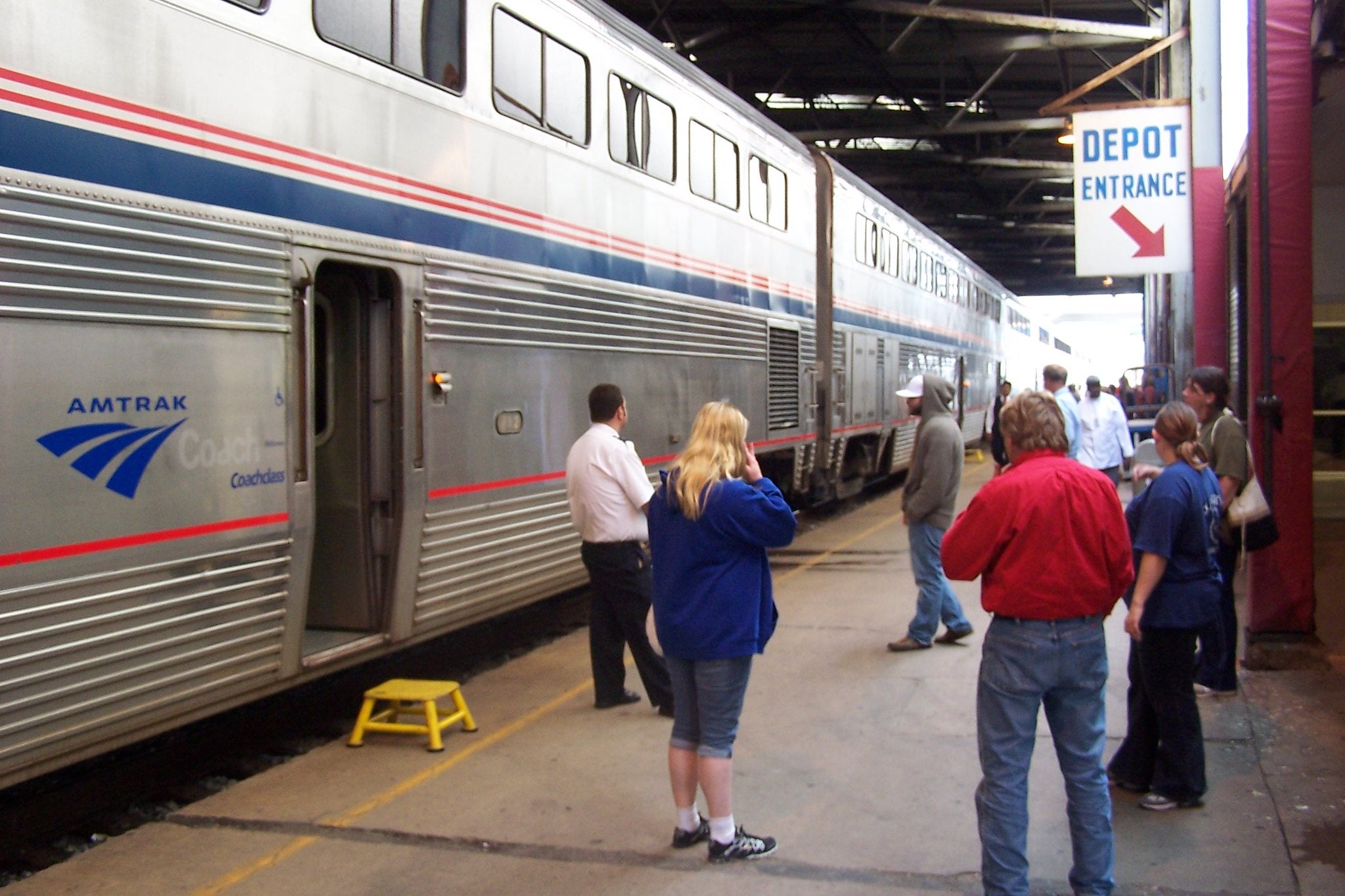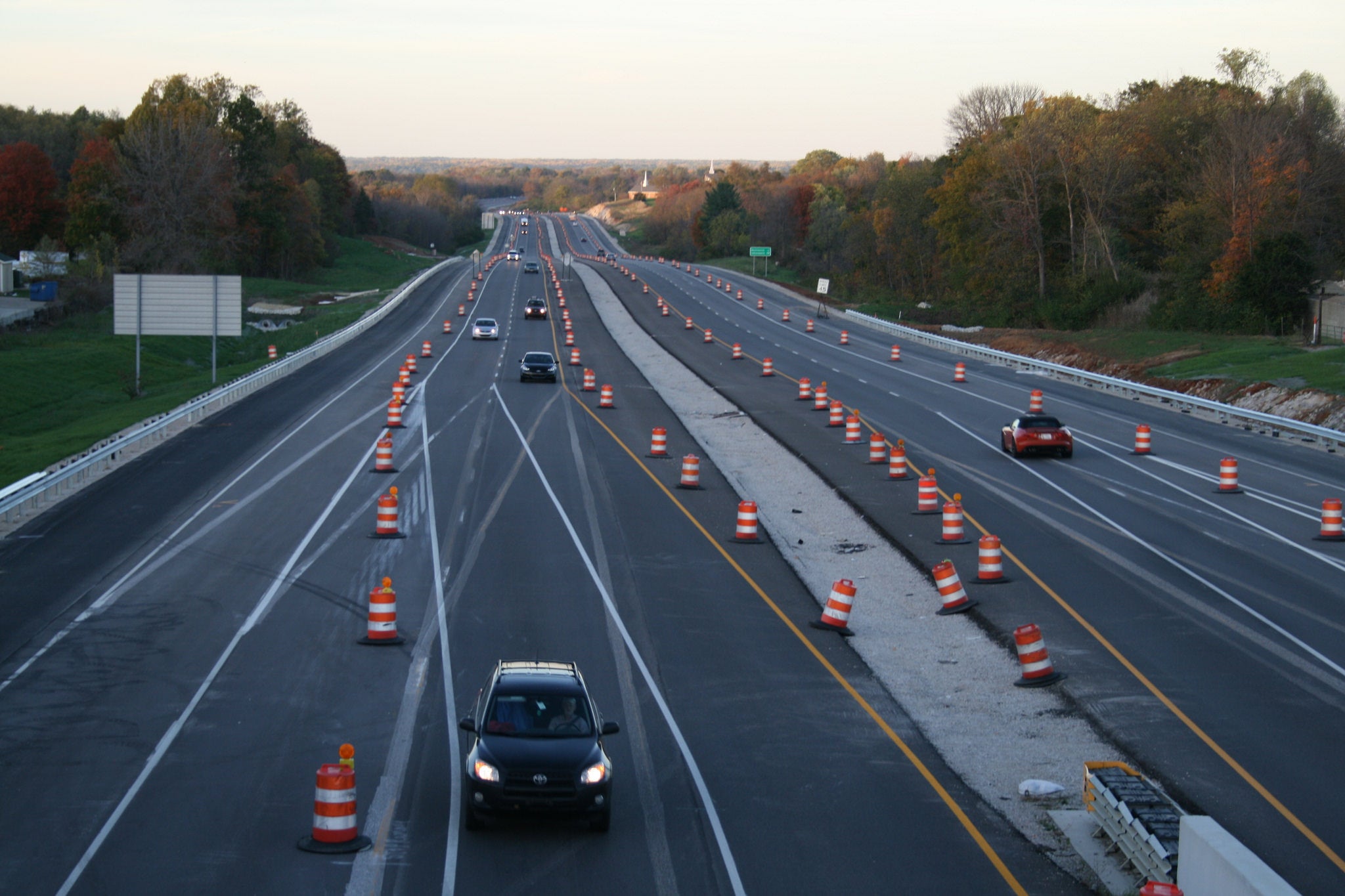The Wisconsin Department of Transportation announced a $75 million grant program to fund transportation projects around the state last week.
The funding will be split between local governments for one-time, multi-modal transportation projects ranging from road repairs to bicycle lanes and harbor projects.
DOT Secretary Craig Thompson recently spoke with WPR’s “Central Time” host Rob Ferrett about the program.
Stay informed on the latest news
Sign up for WPR’s email newsletter.
The interview has been edited for brevity and clarity.
Rob Ferrett: Well give us the basics of what would this project do.
Craig Thompson: This is a $75 million program of one-time money that was transferred out of the state’s general fund. The governor set up a program where counties, cities, villages and towns — we’ve created a criteria — could submit projects for review and we would have them graded against that criteria. And it would really be by their peers. They can submit 12 people to review their projects and they have to be able to demonstrate that they’re going to have an economic impact.
The three pots are split up, about $26 million for the counties, a little over $18 million for the cities and villages and about $28 million for the towns. And so since this is one-time money, we felt it was important that they go towards discrete one time projects.
And the other thing that the governor thought was important was to open it up to more than just roads. So while these do have to be for one-time projects and can’t be for ongoing operations, transit for example could have a successful bid for you know a garage, or bus or improvements or something like that.
RF: Is this viewed as something for urgent needed repairs or could it be for a new project altogether?
CT: It’s for improvement projects, specific one-time projects. There’s a cap for any one grant of $3.5 million and there is a floor of $250,000. So it’s programs that would fit in that mode and we’re anticipating receiving a lot of requests and proposals.
RF: And did I see there is a bridge project that’s already being funded in part by this?
CT: Yes, all of these are going to be competitively placed except for one set aside, and that’s for the (Veterans Memorial Bridge) in Kaukauna, Wisconsin. The legislature had actually put an earmark in for that to come out of the local bridge program. The governor vetoed that because he was afraid that that $1.6 million would have eaten up almost the entirety of the local bridge program. But in his veto message he did say that he thought that the DOJ could find other ways to fund it. And so we talked with the locals and they thought this was worthy and so we set it aside for this project.
RF: Is this something where the locals have to pony up at least some of the cash?
CT: Yes, it’s going to be on a 90-10 split. Ninety percent from the state and 10 percent from the locals. If they’ve got a project where they can put in more than 10 percent that would certainly help their competitiveness.
RF: Now $75 million in some ways is a lot of money, but for the state’s overall transportation needs, there’s a lot of other stuff going on. What are some of the other challenges and key budget items you’re looking at?
CT: I think the most important parts of the budget really are the ongoing programs. The governor in his initial proposal wanted to increase funding for our state highway rehabilitation program, which is the program to fix our current two-lane highways, of $320 million and the Legislature agreed with that. So that will be an effort that will be ongoing, with ongoing sustainable revenue.
There is also a 10-percent increase for general transportation aides to the locals, unlike this program that again would be ongoing for them to maintain the current roads they have. So those are the ongoing sustainable programs that we really think are going to help us do better planning that move forward long term.
RF: What are some of the top priorities for your department when it comes to transportation projects?
CT: There is money in the budget to finish the zoo interchange in Milwaukee, I-43 between Milwaukee and Grafton will begin to move forward and then the Legislature independently put in I-41 between Appleton and Green Bay as a new project and the governor concurred and signed that.
RF: And getting back to the grant program, give us the timeline for when we can actually start seeing some projects getting the shovels ready.
CT: The deadline for submittals will be Dec. 6 of this year, then they will be reviewed over the winter. By next spring we believe we should be seeing some earth being moved.
Wisconsin Public Radio, © Copyright 2025, Board of Regents of the University of Wisconsin System and Wisconsin Educational Communications Board.
